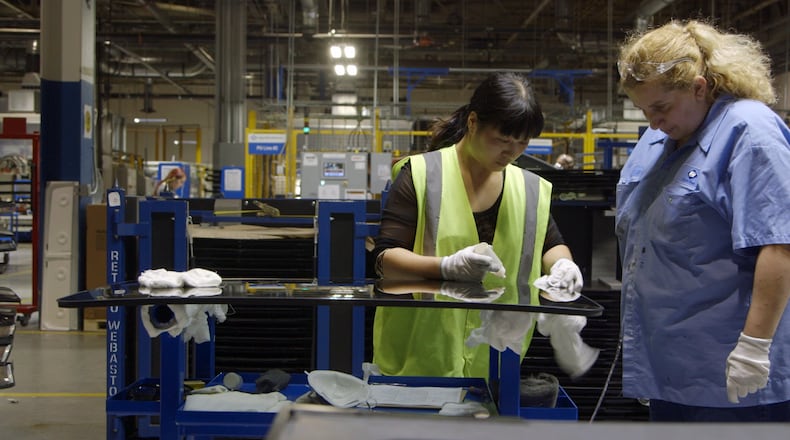“More than six months have passed since these 52 individuals were served with discovery requests, and they have yet to provide responses to Fuyao’s interrogatories and document requests, despite a court order directing them to do so,” Fuyao’s attorneys wrote in their motion.
RELATED: 'American Factory': Senator says he was 'startled' by Fuyao's furious reaction
Often before a trial, parties in a suit engage in a “discovery” phase in which they share information and answer questions from the other side.
WHAT YOU NEED TO KNOW ABOUT FUYAO
The claims of unresponsive plaintiffs should be “dismissed with prejudice,” Fuyao’s motion adds.
Fuyao’s attorneys say they conferred with attorneys for the plaintiffs before filing the motion. They said plaintiffs’ counsel “does not oppose the relief sought, but he opposes the timing of the motion,” preferring to address the issue after mediation, which is currently scheduled for Sept. 27.
In a response, plaintiffs’ attorney Bob DeRose said some of the class members simply may not know of a court directive to respond to Fuyao’s requests for information.
“The problem in this case is that defendant assumes that non-response equals abandonment of their claim,” the response to the Fuyao’s motion says. “What plaintiffs have learned is that defendant’s workforce had extremely high turnover. In an area as economically disadvantaged as Dayton, it is foreseeable that people would move to find work or have to move out of the residence that they lived in when they returned the consent to join (the lawsuit) form.”
Fuyao, one of the Dayton area’s fastest growing and best known manufacturers, is being sued by more than 600 current and former workers over the way the company schedules and pays employees.
The core contention behind the suit goes back to the original plaintiff, Julia Staggs, who filed the suit in June 2017 in Dayton’s federal court.
Staggs worked at Fuyao from September to December 2016. She alleged that she worked overtime at Fuyao without being paid a time-and-a-half wages. She also claimed that she and other workers were not completely relieved of duties during what were supposed to be breaks from work.
The plaintiffs have said that Fuyao automatically deducts from workers’ pay for lunch breaks — whether or not employees actually take those breaks.
Fuyao has denied the allegations and is fighting the lawsuit. A jury trial is currently scheduled for April 27, 2020.
Fuyao’s attorneys did not respond to a message seeking comment.
About the Author

